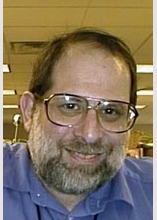By Bruce S. Ticker

PHILADELPHIA — The New York Times headline, “Fanning the Embers After a Fiery Speech,” is hardly explicit. It does not convey the meaning of the story that follows, and the story is relegated to a back section of the June 4 Sunday edition six days after another NYC newspaper broke the story.
If a reader can find the Times article, they must wade through one-third of the piece before getting a blurry idea of what the “fiery speech” is about and what “embers” are being fanned by whom.
A brief portion of the “fiery speech” bashed Israel as delivered on May 12 by budding attorney Fatima Mousa Mohammed during graduation ceremonies at the City University of New York’s law school. Here are the words she passed on to her fellow grads that would be made more widely available to the 2 million Jews who live in or near New York City.
“As Israel continues to indiscriminately rain bullets and bombs on worshippers, murdering the old, the young, attacking even funerals and graveyards, as it encourages lynch mobs to target Palestinian homes and businesses, as it imprisons its children, as it continues its project of settler colonialism…silence is no longer acceptable.”
Mohammed’s words amount to intellectual dishonesty. She issued sweeping accusations against Israel without supplying a smidgen of evidence. Must be that since she does not plan to be a prosecutor, what does she need to know about evidence? Then again, maybe she will jump at the chance to prosecute if Israel is named as a defendant.
Her narrative calls for lots of parsing. Is any of it true? Did she lie? Did she ignore any details that would incriminate the poor Palestinians?
All was quiet and peaceful for the next 17 days. Then The New York Post placed her photo on its May 29 cover page along with the headline “Stark Raving Grad.”
Though she insists in her speech that “silence is no longer acceptable,” “silence” did become “acceptable” to her when a Post reporter phoned her for comment at a relative’s residence in Queens.
“I do not want to speak to anybody,” she said.
Strange. She had plenty to speak about to anybody at CUNYs commencement. Since she will be practicing law, she is joining a profession that inherently shuns “silence” and advances plenty of speech. Too much speech at times.
The story blew up in short order. It was Mohammed’s turn to take a bashing. CUNY officials called her comments “hate speech.” Mayor Eric Adams said “we cannot allow it to happen.” Her speech amounted to “incendiary, anti-Israel propaganda,” proclaimed the Jewish Community Relations Council of New York.
U.S. Rep. Mike Lawler introduced legislation to rescind federal funding from colleges that promote antisemitism, New York Jewish Week reported. “No college or university should receive a single dollar of federal education funding if they peddle in the promotion of antisemitism at an event on their campus,” the suburban Republican said.
I checked the Times each day for its coverage of Mohammed’s speech and the aftermath, and nothing appeared the rest of the week.
What happened was news. Not a potboiler. Much of it had the earmarks of a sideshow. Some of the response was an overreaction. It was still news. A CUNY grad speaker distorted the facts of a tragic conflict 5,400 miles away, in the process rebuked the Jewish community and communal leaders went hunting for scalps.
The Times should have reported the story within a few days on their news pages. Ginia Bellafante grappled with the incident in her “Big City” column in the Metropolitan section, a back section that many readers might have missed.
Per the headline, a “fiery speech” about what?
A photo caption in extremely small type reads: “A commencement speech by a student of the City University of New York’s law school included criticism of Israel and the New York Police Department.”
Criticism? I criticize Israel. Jews in both Israel and America criticize Israel. Is there something different about her brand of criticism?
Bellafante’s last paragraph confirms that she misses the point of Jewish complaints. “Ultimately, when a school inculcates in its students the importance of speaking out against oppression,” she writes, “it cannot be surprised when, given a big platform, they take you up on it.”
It is vital to speak “out against oppression,” but Mohammed refused to explain the full scope of Israel’s so-called “oppression.”
Granted, Israel has made serious mistakes, especially since Prime Minister Benjamin Netanyahu recently returned to power, but Mohammed leaves no room for shades of gray. Like most pro-Palestinian demagogues, Mohammed portrays Israel as a monstrous villain who oppresses the poor Palestinians. She ignores the fact that Prime Minister Ehud Barak, one of Netanyahu’s predecessors, proposed an independent state 23 years ago, and Arab leader Yasser Arafat rejected it out of hand.
Such history – that the Palestinians were offered their own state in 2000 – is rarely mentioned in news stories.
The Times and most other news media have a mixed record for reporting on Israel and other Jewish issues, a considerable amount of it being unfair and cursory. That does not mean the media have not done good work on Jewish issues. In fact, the Times deserves credit for exposing shocking practices in the ultra-Orthodox yeshiva system. The Times was accused of promoting antisemitism, but any Jewish group must be accountable when it does something questionable. It so happens that I have had personal conflicts with ultra-Orthodox infrastructure, and I would not be surprised if the Times barely touched the surface.
But the Times must likewise be accountable when its coverage of a Jewish issue is so deficient – such as that of Mohammed’s “fiery speech.”
*
Bruce S. Ticker is a Philadelphia-based columnist. He may be contacted via bruce.ticker@sdjewishworld.com
“Granted, Israel has made serious mistakes, especially since Prime Minister Benjamin Netanyahu recently returned to power…”
Apparently, the Israeli electorate disagrees with you.